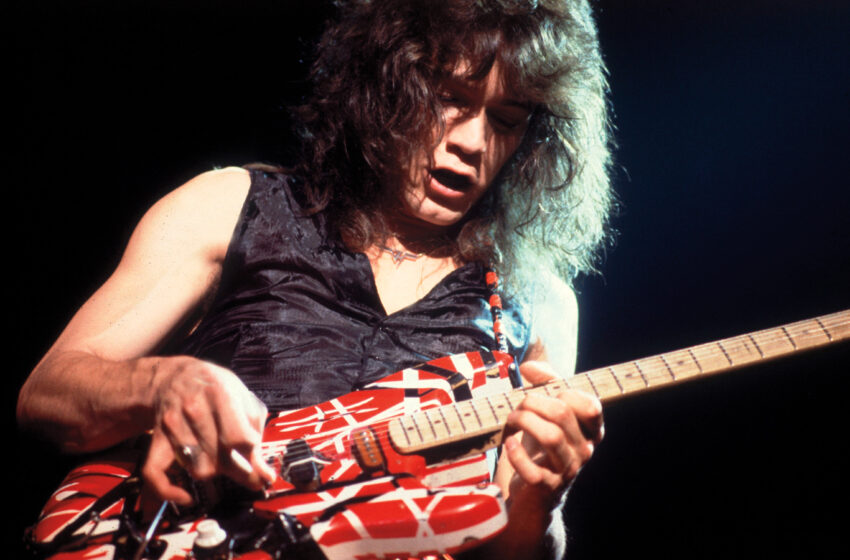
Remembering Eddie Van Halen: Legacy of the Guitar Virtuoso
Roxanna Zoughi pays tribute to Eddie Van Halen, legendary guitarist of pioneering hard rock band Van Halen, who has died of cancer aged 65.
Eddie Van Halen is widely considered to be one of the greatest and most innovative musicians of all time, and perhaps the greatest guitarist of his generation, who pioneered the technical advancement of his craft and played by no rulebook in doing so. He has been a huge influence on great modern players who came after him, many of whom paid their respects on social media following the death of their fellow musician and friend, including Jerry Cantrell of Alice in Chains, Tony Iommi of Black Sabbath and Led Zeppelin’s Jimmy Page who posted to Instagram: “He was the real deal: he pioneered a dazzling technique on guitar with taste and panache that I felt always placed him above his imitators.”
The hard rock sound was first sparked in the mid-60s and bands like The Who had carried its flame well into the mid-70s, until newly emerging acts like Van Halen had begun experimenting with the genre; moving away from the psychedelic and bluesy arrangements some hard rock groups had typically stuck to and instead transformed the sound with an incorporation of pop. And with that, like Hendrix had before him, Eddie made people fall in love with the guitar again.
Eddie had originally considered naming his band after the 7th track of Black Sabbath’s debut album, ‘Rat Salad’ before deciding on his own family name, which unbeknownst to him at the time, would become a household name in rock n’ roll history. Despite being influenced by the Birmingham-born metal band, Van Halen shifted away from Iommi’s moody gothic riffs and went on to produce a vivacious hard rock and pop fusion, reflective of the vibrant southern Californian environment from which it was born. With the release of their self-titled debut album in 1978, the band enjoyed massive success as they sold more than 10 million copies and knocked disco out of its chart top spot. Eddie had proved his musical creativity in melodious opening riffs followed by surprisingly short and straight to the point solos, which despite their briskness, did not in any way belie the self-taught guitarist’s evident talent.
Renowned for their explosive live shows, amplified by David Lee Roth’s vocals and enhanced by Eddie’s athletic and dazzling solos, the group earned a reputation as one of the greatest live performances of rock, and would eventually become one of the top 20 bestselling artists of all time. But Van Halen were not just a band just for rock listeners; Eddie knew how to write great pop songs too. Their ‘1984’ album included some of their biggest hits, namely ‘Jump’, most memorable for its vibrant synth opening perfectly enhanced by Eddie’s shimmering solos.
He can also be credited as the creator of one of the most easily recognizable guitars in rock history, which he dubbed the ‘Frankenstrat’. The instrument sports intersecting black and white lines which cut across a fire red surface, complete with flashing truck reflectors on the back. The freakish creation perfectly mirrored its creator’s equally innovative and experimental musical formulations – an instrument fit for its player no doubt. But Eddie (along with his brother Alex, drummer of Van Halen) was originally classically trained on piano as a young child, which afforded him a wide range of musical skill that allowed him to revolutionize the technical advancement of guitar playing. Eddie’s most notable innovation was perhaps his use of a finger-tapping technique which involved using both hands on the neck of the guitar to produce sound, not so dissimilar to how one would play a piano.
Eddie Van Halen told Guitar World in 1981: “If you’re a musician, you just play until you die. It’s not an ordinary job.”
Photo: Paul Natkin/Getty

